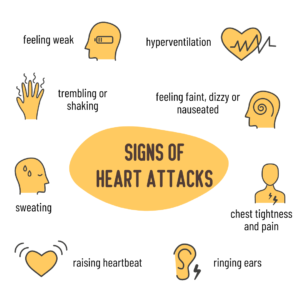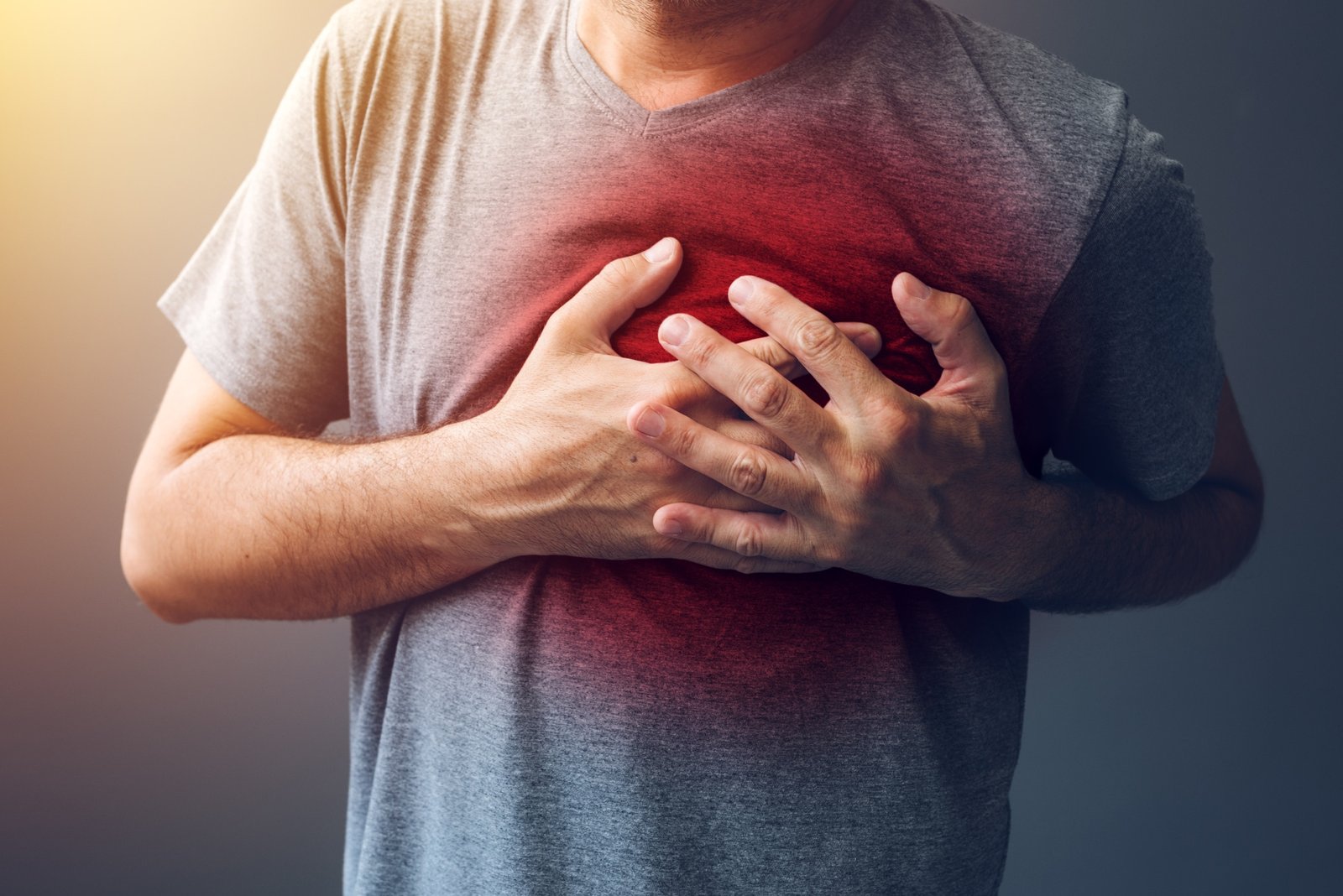Table of Contents
Why Heart Attack is Increasing in Young Age Nowadays?
The cases of Myocardial infarction, also and commonly called a heart attack among youngsters have increased in recent years, which is so worrying. Heart disease is a significant cause of death worldwide, and its prevalence has risen over the past 5 years. There are several factors in the context of increasing heart attack cases contributing to this concerning trend some of the major causes.
Reasons Behind Increasing Heart Cases in Young Age
People over 60 year old or in their later years are more likely to develop heart disease. But the reality is that anyone at any age can develop heart disease. Young people are more likely to suffer from heart attacks these days, especially those between the ages of 25 and 40. About 25% of heart attacks happen under the age of 40. Heart attacks, medically called atherosclerosis of the heart, are caused by blockages in arteries or blood contractions that prevent the heart from receiving enough blood.
The Modern Lifestyle:
Our fast-paced lifestyle, while bringing remarkable advancements, has also led to increased sedentary behaviours, poor dietary choices, and heightened stress levels. The youth of today are increasingly adopting unhealthy behaviours, including smoking, heavy drinking, stagnant lifestyles, and a preference for processed, high-calorie, and nutritionally deficient foods.
Obesity:
Carrying extra weight puts extra pressure on the heart, which can result in elevated blood pressure, higher levels of cholesterol, and insulin resistance. Having excess fat around the abdomen is especially dangerous as it causes inflammation and changes how the body metabolizes food. It is essential to keep a healthy weight by eating a well-rounded diet and staying active to lower the chances of having a heart attack.
Stress:
The competitive and fast-paced nature of modern life often subjects young individuals to chronic stress. When we experience stress, our bodies respond by releasing hormones such as cortisol and adrenaline. These hormones, when constantly elevated, can harm our arteries and raise blood pressure. Additionally, people dealing with stress often turn to unhealthy eating patterns for solace, further increasing the likelihood of heart attacks.
Other Factors:
Factors such as inactivity, insomnia, smoking, drinking, diabetes, hypertension, and obesity contribute to the escalation of cardiovascular risk factors in the young population.
Signs of Heart Attack

Teens may experience tension, tightness, or tension in their chest. Other areas of the body, such as the arms (especially the left arm), neck, waist, shoulders, back, or abdomen, can be painful or uncomfortable for some people, and even in the absence of chest pain, they may also experience shortness of breath. In children, vomiting or other digestive symptoms are sometimes the first indication of a heart attack. In addition, they may experience dizziness or lightheartedness, which can be a warning sign when other symptoms are present. It can be chilling for young people when they have a heart attack.
Despite adequate sleep, extreme fatigue is a sign of heart disease. Heart disease can also cause several young people to become very anxious or scared. Irregular or rapid heartbeat and tachycardia can be signs of a heart attack. Symptoms in women can include severe fatigue or lower back pain.
If these symptoms appear at an unexpected hour, such as late at night or early in the morning, do not ignore them. If any pain lasts more than half an hour, you could have a heart attack. Take painkillers first, but if your chest pain persists, go to the nearest hospital once. An ECG is performed to diagnose a heart attack. Keep in mind that the first hour after a heart attack is called the “Golden Hour.” Within two to four hours after a heart attack, doctors can quickly open a blocked artery, free up most of the heart’s arteries, and save the patient’s life. However, if treatment is delayed for more than five to six hours, a significant portion of the heart muscle may be injured. Usually, after about 12 hours, the damage can be irreparable.
How to Decrease the Risk of Heart Attack?
In addition to taking regular medicines, people should stay inside during the winter, avoid going out too early, avoid snacking, wear proper leather clothing, and exercise regularly to reduce the chances of heart disease.
Avoid over training. Regular exercise is recommended to avoid cardiovascular disease, and exercise intensity should be gradually increased as tolerance and endurance improve.
- 7-8 hours of sleep per night is essential for everyone’s well-being.
- Alcohol and smoking must be completely avoided under any circumstances.
- Use yoga and other stress relief techniques regularly to reduce depression.
- Make sure to consume an ample amount of water during the day to keep yourself properly hydrated.
- Limit your intake of sugar-laden drinks and caffeine.
Quit smoking:
One of the causes of heart disease is smoking. It raises the likelihood of blood clots, which have the potential to block arteries and result in heart incidents. It also increases the risk of high blood pressure and high cholesterol associated with heart disease.
In addition to direct effects on arteries and other blood vessels in your body, smoking also raises your cholesterol levels and increases your risk of atherosclerosis, arterial lining thickening or hardening disease elevated cholesterol causes plaque to build up and narrow your arteries again, and eventually blood flow stops completely. Thus, quitting smoking is the first line of defense against heart disease.
Keep Your Body Weight Ideal:
Being overweight can lead to diabetes, high blood pressure, heart disease, and heart disease. You need to maintain a healthy weight by eating healthy and exercising regularly.
Avoid Sitting Too Long:
Lack of physical activity increases your risk of heart disease. Lack of physical activity is described as a sedentary lifestyle and increases the risk of cardiovascular disease. It includes regular exercise, not to mention staying in bed or watching television all day. So, to lower your risk of heart disease, stay active and avoid prolonged inactivity.
Embrace a Stress-Free Lifestyle:
While some stress in life is inevitable, more stress can negatively affect a person’s health, such as high blood pressure or heart disease problems in personal life, professional life, or family life can create stressful situations. However, excessive stress can lead to heart disease. Deal with psychological challenges and recognise the stress in your life because in some cases, stress can aggravate heart disease or cardiovascular problems despite other risk factors.
Keep Blood Pressure, Cholesterol, and Diabetes Under Control:
Simply put, blood pressure is the force of blood against the artery walls as blood flows through them. Muscles can get damaged by high blood pressure. Over time, the risk of heart disease and stroke increases. Like this, diabetes is a chronic disease that increases the risk of heart disease. Diabetes causes blood sugar levels to rise too high due to the body not using insulin properly. If left untreated, it can have major health issues such as heart attacks and strokes.
Another risk factor for heart disease is family history. If you have heart disease, you should be checked by a doctor.
Conclusion
The youth can prevent heart attacks by embracing a lifestyle promoting heart health, including consistent exercise, managing stress levels, and following a nutritious diet.
Get Latest health updated tips at WorldHealthTip

